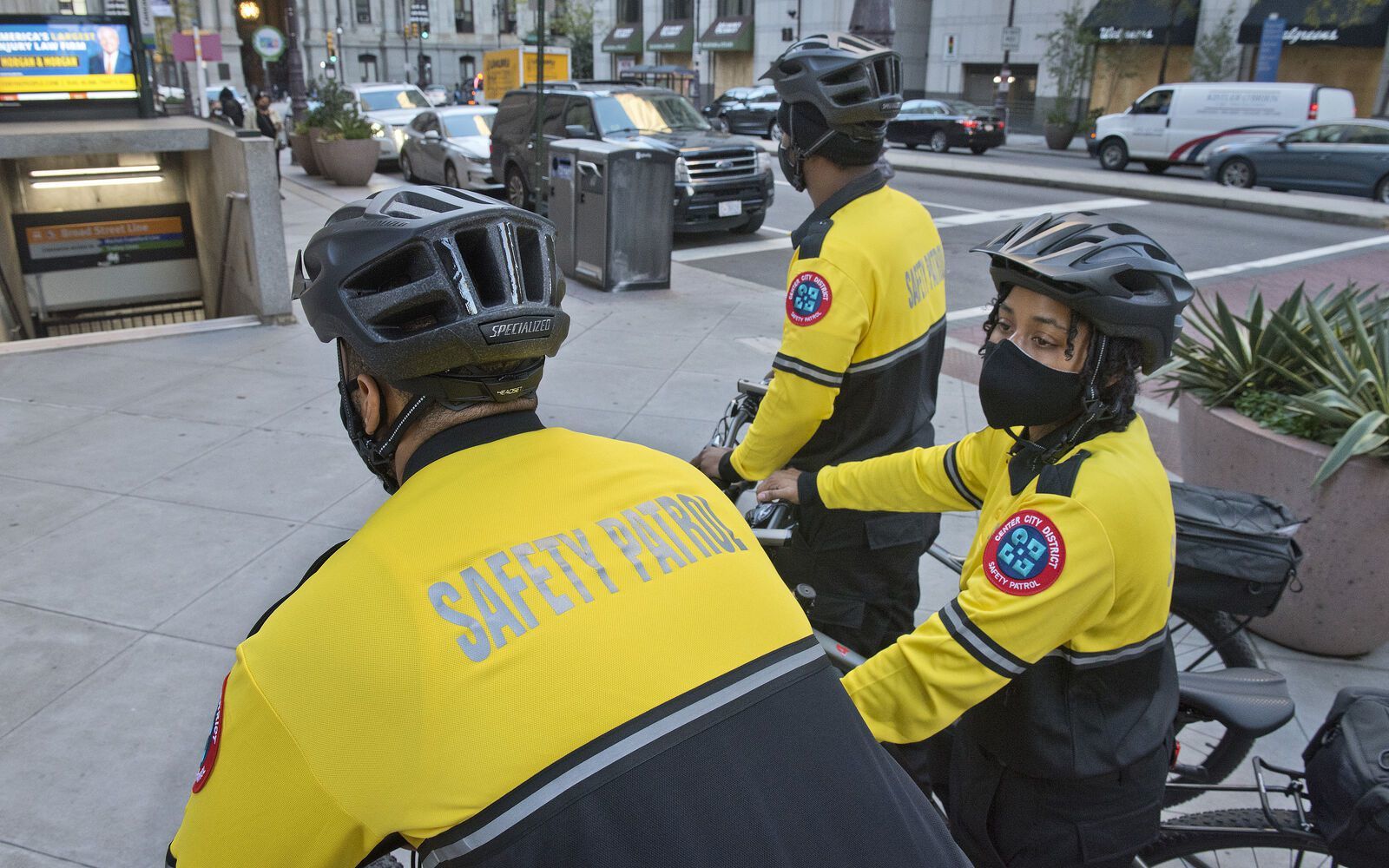Safety concerns in Center City lead to more unarmed bike patrols and security guards

Philadelphia PA September 29 2022 More unarmed bike patrols and more security guards.
This is the strategy to make office workers and visitors feel safer as employees return to work in Center City. Through August, 52% of Center City office workers were back, though the number could go up with Comcast Corp., one of the largest corporate employers downtown, requiring Comcasters to come into the office at least three days a week. The policy took effect earlier this month.
Saying there is a “negative halo” over the city, the head of the Center City District, Paul Levy, has organized an initiative among downtown organizations to have more security personnel visible on the streets. The district itself is putting more unarmed bikers on the street.
“I know the pessimism we had here in the late 1980s,” said Levy, whose business organization promotes downtown and whose teal-uniformed employees clean the streets and offer directions. “We turned around a negative situation … and we can do it again.”
Philadelphia flirted with financial crisis in the late 1980s and early 1990s before pulling out of the tailspin. The city’s current crisis is not financial but rather fallout from the pandemic and rising crime rates, including shootings. Big-name retailers Rite Aid and Starbucks have closed downtown stores.
The Center City District says it has added 20 employees to its corps of uniformed but unarmed bike patrollers in recent months. The patrols began in 2020 and have expanded over time. With the latest expansion, they will patrol seven days a week with overlapping shifts between when people are leaving their offices between 3 p.m. and 7 p.m. Twenty-five bikers will patrol during that time. In the evening, the bike patrols will concentrate on the dining and entertainment district on South Broad Street.
“We are not replacing the police,” Levy added.
About 1,700 property owners finance the Center City District through assessments, or fees based on property values. The owners also are beefing up security themselves in preparation for increased occupancy, said Dave Pearson, the CEO of 215Secure who has been signing new contracts with restaurants, offices, and other properties in Center City.
“Some companies are putting in panic alarms, giving employees an intrusion alarm in case they work late at night, as well as more video surveillance systems for deterrence,” he said.
Pearson also is getting requests for “remote” guards, or security service, monitoring facilities in Center City and the suburbs. Partly, that’s due to a shortage in people wiling to work as in-person security guards, he added.
John McNichol, the president and chief executive officer of the Pennsylvania Convention Center, said the center has boosted it security guards who patrol in the area outside the convention buildings by about 20%.
“We are pushing out guard services outside the door,” McNichol said, “to give a greater perception of security around the building.
But he added that “we can’t do it 24/7. We do when we know we will have traffic.” McNichol is referring to the return of conventions.
Two years ago, convention planners and visitors feared infection from the pandemic, leading the convention center to invest $25 million into air-handling equipment and escalator hand rail sanitizers, McNichol said. Now “it feels like cities have lost a sense of security in the downtown centers and that is the new challenge,” McNichol said.
A Comcast spokesperson said “we have contributed to and worked closely with the City, Chamber of Commerce, and Center City District on the Ready Set Philly initiatives [organized by Greater Philadelphia Chamber of Commerce, the city and other groups to reboot Philadelphia after the pandemic]. We have a close working relationship with the Philadelphia Police Department and we have our own security team.”



